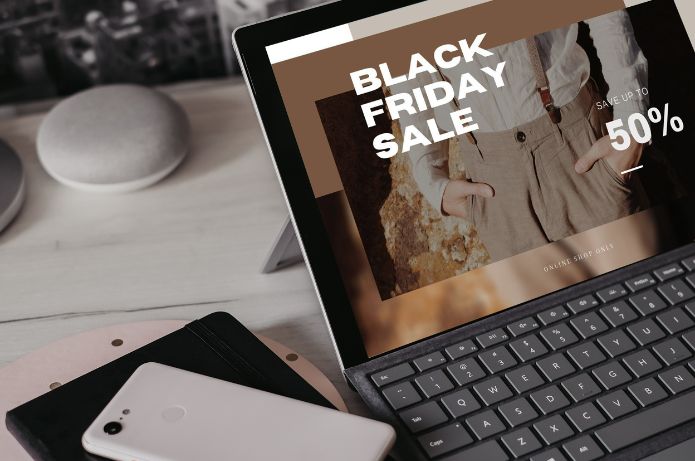A Rocket Lab, empresa multinacional criada em 2019 e reconhecida por impulsionar o crescimento exponencial de aplicativos, passa a se posicionar como hub de crescimento de aplicativos e expande seu portfólio de produtos globalmente, e o Brasil recebe simultaneamente as soluções. Com o objetivo de conectar diferentes tecnologias e oferecer recursos inovadores para empresas que desejam potencializar os resultados de campanhas no universo mobile, a Rocket Lab, além de sua oferta já consolidada de inventário SDK (Software Development Kit), agora conta com três novas soluções e um relançamento que prometem atender às mais diversas necessidades de marcas e agências.
Para Daniel Simões, Country Manager da empresa, as novidades respondem às necessidades do mercado brasileiro, com seus desafios e complexidade, para incrementar a entrega de resultados diante da saturação dos canais tradicionais. “As estratégias e soluções mobile têm sido integradas a soluções mais amplas, e de formas cada vez mais sofisticadas e tecnológicas, visando o crescimento sustentável dos aplicativos. Nos consolidamos como parceiros na criação dessas estratégias e, agora, com um portfólio ampliado, podemos alavancar ainda mais os resultados dos nossos parceiros, buscando audiências onde quer que elas estejam”.
De acordo com o executivo, a combinação da expertise com o mix de soluções altamente tecnológicas da Rocket alavanca significativamente os negócios dos clientes, o que tem corroborado para as relações duradouras que a companhia criou com grandes marcas, como Amaro, iFood, Natura e Serasa. Confira a seguir as novas plataformas:
First Impact Ads (OEM) – Solução voltada para campanhas de anúncios mobile distribuídas diretamente via fabricantes de dispositivos Android (em OEMs) e operadoras de telefonia, alcançando os usuários logo ao ativarem seus dispositivos. Além de capacidade para atingir mais de 90% do ecossistema Android, a solução conta com features de segmentação altamente avançadas. Com o apoio da Rocket Lab, as marcas podem contar com estratégia e otimização desse tipo de campanha centralizadas em um só lugar, com diversidade de formatos, além de relatórios e faturação unificados.
Apple Search Ads (ASA) – Trabalha com anúncios diretamente nos resultados de busca da App Store, direcionados a usuários que estão ativamente pesquisando por novos aplicativos para download no ecossistema iOS. Segundo um relatório de 2022 do Sensor Tower, a receita média por usuário (ARPU) nos aplicativos iOS é mais alta, sendo, respectivamente, 1,5 a 2 vezes maior que no Android. Além disso, de acordo com a Apple, mais de 70% dos downloads acontecem após uma pesquisa na App Store, o que garante uma audiência engajada e intencional. Com essa solução, a Rocket Lab ajuda as marcas a desenharem suas estratégias nesse canal como também garante a otimização de campanhas após eventos de instalação, com tecnologia de smart bidding, bem como fornece reports detalhados e faturação local para o Brasil, o que garante economia em impostos.
Mídia Programática – Ferramenta que consiste na utilização de tecnologias de compras automatizadas de anúncios em tempo real baseadas em Inteligência Artificial para alcançar públicos-alvo de maneira eficiente e escalável, tanto para aquisição quanto para engajamento de usuários de aplicativos mobile. Proporcionando assim maior otimização dos investimentos e garantindo menores custos por aquisição (CPA, no original em inglês). Com ele, e a grande expertise em app growth da Rocket Lab, é possível combinar campanhas de programática com mais de uma DSP (Demand Side Platform), centralizando todas elas em reports unificados. As parcerias da empresa com as DSPs mais conceituadas do mercado também garantem ótimas condições de valores.
Reach Beyond (existe desde 2019, agora em nova versão) – Plataforma que expande o alcance de campanhas mobile ao integrar diversas fontes de tráfego, como parceiros de SDK e redes de anúncios nativas, centralizando e otimizando os esforços de aquisição e engajamento de usuários. Com anos de experiência neste tipo de inventário, a Rocket Lab se tornou expert em mapear as fontes de tráfego mais qualificadas para cada tipo de aplicativo, oferecendo integração rápida e simplificada, estratégia e otimização para que as marcas ampliem o alcance de suas campanhas imediatamente, sem necessidade de período de aprendizagem.
“Nosso objetivo é desempenhar um papel fundamental no cenário global de mídia mobile, impulsionando o crescimento de aplicativos e transformando o mercado com nossa expertise e capacidade de criar estratégias integradas que dialogam e atendem às necessidades dos clientes”, finaliza Simões.


